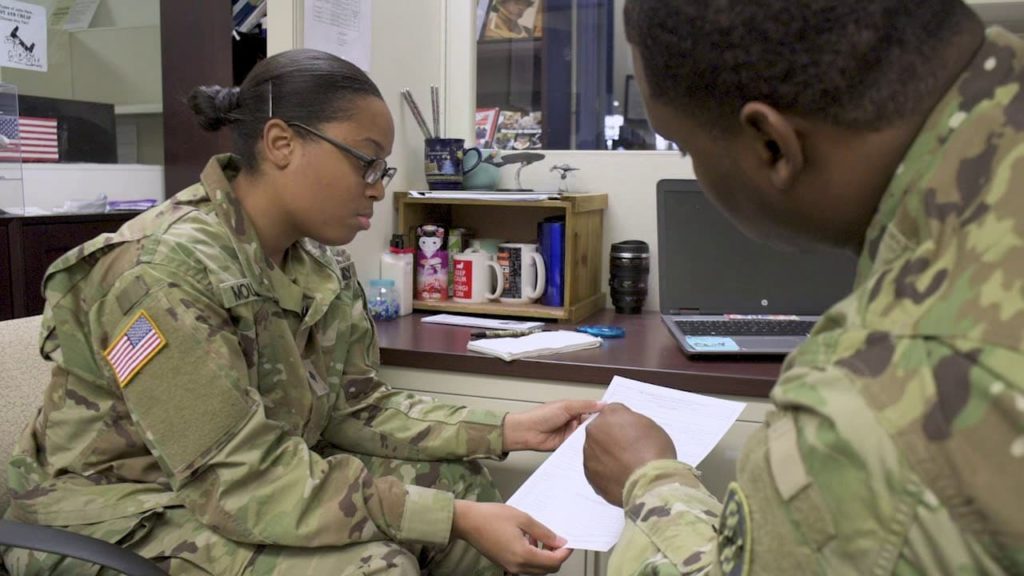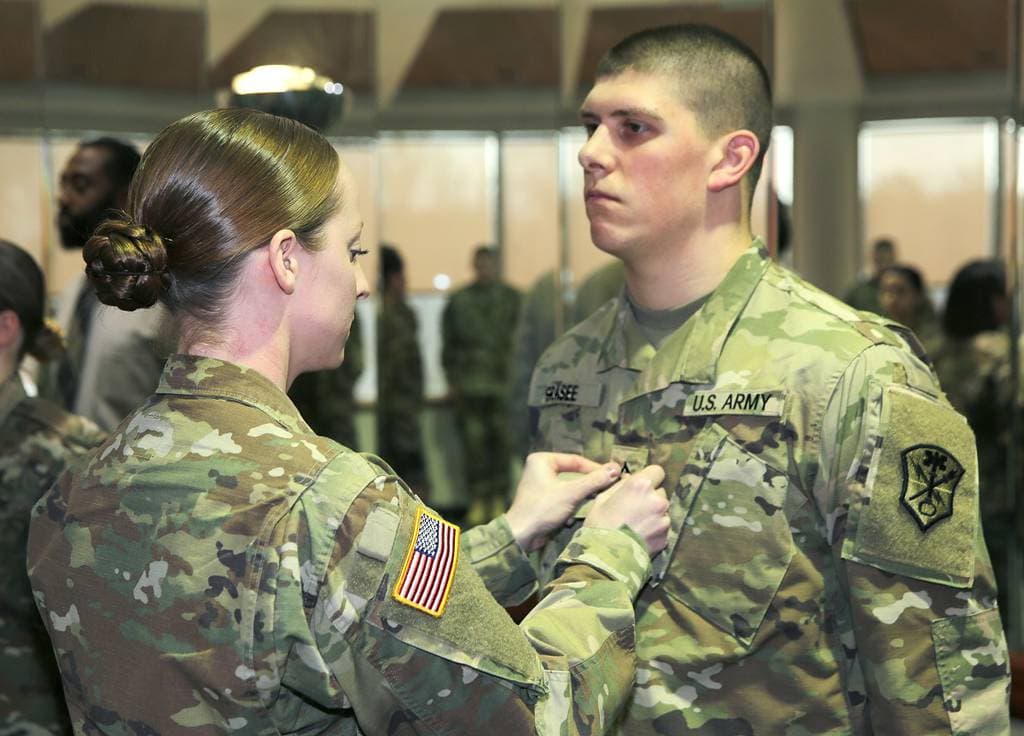Whether you are a retired soldier or not, you may have wondered if you can be recalled from the Army. This article will help you to learn what this means and if you can be recalled from the army.
During times of national emergency, retired military members can be recalled to active duty for an indefinite period of time. Some people argue that it is an unconstitutional practice. However, the court-martial process is similar to that of active duty members.
Some policies vary according to the service branch. Category II service members, for example, are more likely to be recalled during a time of war.
In addition, retired soldiers are not required to take the APFT. Instead, they are expected to maintain a personal physical readiness program. They may be placed in rehabilitative programs or supervised by a commander.
The stop-loss policy has been in place since 1984. It was created to keep service members on active duty after the Vietnam War. It allows service members to receive $500 extra per month.
The stop-loss program is not mandatory, but a few have used it. The government has implemented the policy a few times, most notably after 9/11. It requires a congressional declaration of national emergency.
The Department of Defense (DoD) is currently asking Congress to increase its authority to recall retirees. Its proposal predates the turmoil following the death of former Navy Secretary George Floyd.
During times of national emergency, a reservist can be recalled to active duty if the president decides that a reservist is needed to support a mission. A presidential reserve call-up authority allows the president to recall less than 200,000 reservists.
When an officer is recalled on active duty, he or she is not eligible for promotion. A reservist has the same rights as a drilling reservist. They have access to commissary and base/post exchanges.
The DD Form 214, or a comparable document, is required when a military member is recalled to active duty. This is a certificate that describes the period of recall.
What does a recall mean in the Army?
During an emergency, the Army Human Resources Command (HRC) may voluntarily recall soldiers assigned to the Retired Reserve. These Soldiers are not required to retire from the service, although they are eligible for enlistment in the Army National Guard. In addition to these benefits, they are also eligible for active duty assignment.
Typically, the period of retention in retired status is not more than a year from the date of retirement. However, this may be extended in limited circumstances. The time for which the soldier is assigned to the Temporary Disability Retired List does not count toward this limit.
Retired enlisted Soldiers who held reserve commissions are not eligible for advancement to the Reserve Officer grade. If a soldier is called to active duty, he must serve a qualifying period of time in an active status outside of the Regular Component. During this time, he can continue in annual training or unpaid training.
In certain situations, retired officers on active duty are requested to remain in service for a specific billet, mission requirement, or unique circumstances. The command or branch can refer the officer for a grade determination.
In the event that the recalled Soldier is medically disabled, he may be issued a 15-year NOE. This permits the soldier to remain in active status, but he is limited in his service.
Retired Aviation officers are generally recalled for a minimum of two years but are generally recalled for no more than three years. This is the same for Officers in Judge Advocate General’s Corps.
If a Soldier elects to retire, he will be counseled on retirement pay and benefits. In the event that the Soldier decides to discharge, his retirement credits record will show his total number of months and years of military service. This computation will be recomputed to the Soldier’s date of retirement. The computation will become the basis for future payments.
Who can recall you from leave army?

Among the countless acronyms and tidbits floating around the Canadian Forces command center, the who can recall you from your duty station is a solitary entity. As such, the best way to go about recalling you from your post is by hand. The military of old did not allow for the recall of servicemen unless they are specifically authorized to do so. The aforementioned bureaucracy is one of many reasons why the servicemen of the past are in different shackles than their successors. The chief of naval operations is no longer a junior officer but a senior officer. As such, the who can recall you from your post is a coveted position.
The person who can recall you from your post is arguably the best person to turn to to ensure the highest level of professionalism. As such, a member recalled from his post is a likely candidate for promotion to higher rank or, in the worst-case scenario, a demotion. The who can recall you from your post has a short list of worthy candidates.
Is the Army recalling soldiers?
During a state of national emergency, the president of the United States has the power to recall retired members of the military to active duty. This can be done with the consent of the service member. However, the president is limited to a maximum of 365 days of call-up. If the military needs more time, the president can request a congressional national emergency declaration.
For example, during the coronavirus pandemic in March, the Army requested that retired personnel join the fight against the virus. Approximately 15,000 service members responded to the call for volunteers. The majority of the volunteers will go to major medical centers to receive treatment.
There are a variety of methods the Army can use to recall retired soldiers. The first method is through a policy memo. The memo is published in the All Army activities message. If the Army needs additional Soldiers for deployment, the department may release Soldiers from their overseas duty assignment.
The second method is through an executive order. The current law allows the military to recall 1,000 retirees to meet wartime requirements. This is considered the “stop-loss” policy. It was first enacted after the Vietnam War.
The Pentagon is asking Congress to expand its authority to recall retired military to help address an influx of military retirements. These military retirements reduce the nation’s security expertise.
Retired soldiers must remain within the Army body composition standards during the recall period. They also need to stay in a personal physical readiness program. This program will be supervised by a commander. If a retired soldier exceeds the minimum Army body composition standards, he or she will be placed in an Army body composition program.
Can retired military be recalled and court martial

Whether a retired military member can be recalled and court-martialed depends on the situation. Depending on the type of retired member, the Uniform Code of Military Justice (UCMJ) applies. If a retiree has been charged with an offense, it’s important to consult a military law attorney to determine whether the government has jurisdiction.
In the past, retired members have been pulled back into active duty to face charges. Some people argue that this practice is unconstitutional. However, the Supreme Court has yet to rule on the issue.
In Larrabee v. Braithwaite, a retired Air Force sergeant was charged with participating in an illegal drug trafficking operation. He was convicted and sent to prison for 18 months. His appeal is currently pending at the District of Columbia Circuit Court of Appeals.
Some legal experts argue that the UCMJ applies to retired military members. They also argue that prosecutors have expanded their court-martial jurisdiction to include some retirees. The courts have ruled that courts-martial jurisdiction is dependent on the accused’s status as a member of the Armed Forces.
Although the UCMJ does apply to some retirees, it does not have jurisdiction over all. It does not have a statute of limitation for some offenses.
Some retirees are called back into service to perform duties in national defense. They are not required to wear a uniform and do not serve in a combat unit. They receive retainer pay and are subject to the Uniform Code of Military Justice.
However, Congress has not made it mandatory for retirees to be subject to court-martial jurisdiction. A policy dispute over whether the UCMJ applies to retirees has sparked litigation efforts. The question of whether a retired military member can be court-martialed has not been decided, but it could be soon.

